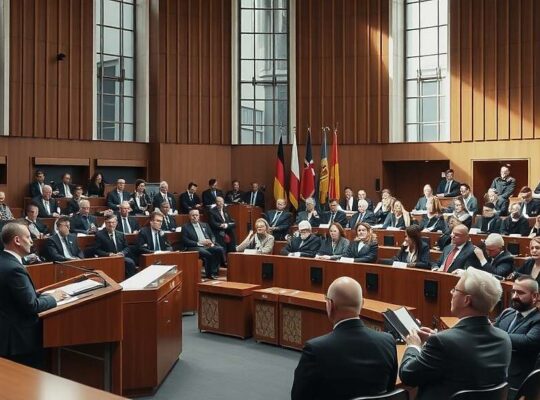The leadership of Germany’s Social Democratic Party (SPD) is facing internal dissent as it defends proposed reforms to the Bürgergeld system, a key social welfare program. SPD General Secretary Tim Klüssendorf has staunchly defended the reforms, attempting to quell rising concerns among party members who fear the changes will disproportionately impact vulnerable citizens.
Speaking to the “Rheinische Post”, Klüssendorf acknowledged the urgency of modernizing and fortifying the German social state, emphasizing a need for constant review and “balanced corrections” to ensure its functionality. The planned Bürgergeld reforms, he asserted, directly align with commitments made in the coalition agreement and represent a reliable adherence to pre-existing agreements. However, the proposed changes, which reportedly tighten eligibility requirements and introduce stricter controls, have triggered anxieties regarding a potential erosion of social safety nets.
While the party publicly touts a goal of supporting those in need and integrating people into the workforce, critics within the SPD argue the reforms prioritize fiscal austerity over social responsibility. The measures have ignited a broader debate regarding the direction of SPD policy and whether it remains true to its foundational principles of social justice.
Klüssendorf, however, pivoted the conversation to the issue of wealth inequality, arguing that reforms to social welfare must be coupled with a more equitable distribution of the tax burden. He forcefully advocated for increased taxation on high earners and inherited wealth, branding it an essential step toward ensuring the financial sustainability of the German social state and a demonstration of solidarity. “We must do everything to ensure that even the highest assets and inheritances finally make their appropriate contribution to financing our community” he stated, signaling a renewed push for progressive taxation policies. This emphasis suggests that the Bürgergeld reforms, however contentious, are perceived as a necessary precursor to a wider discussion on wealth redistribution and the fundamental principles of social justice within Germany.












